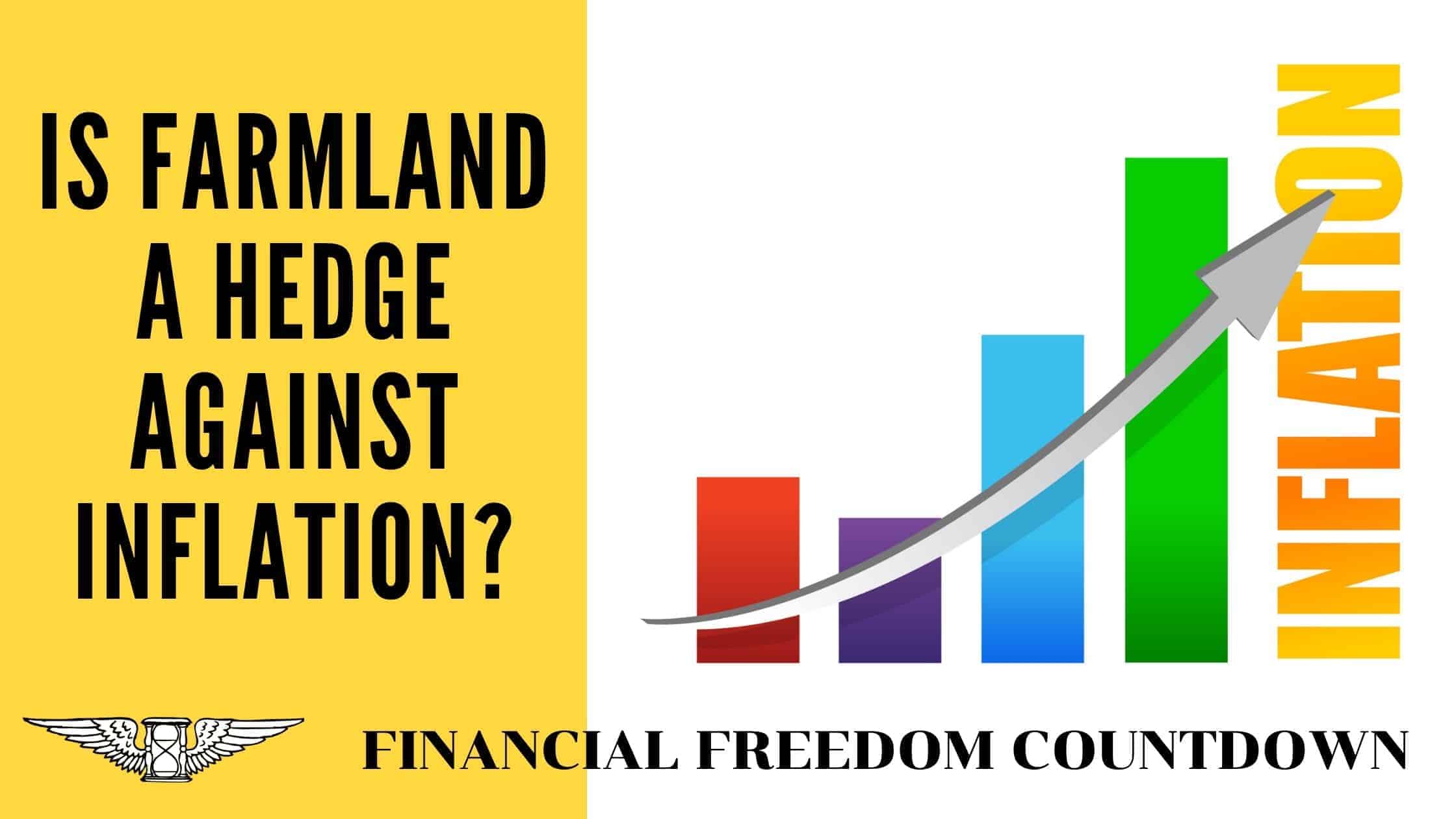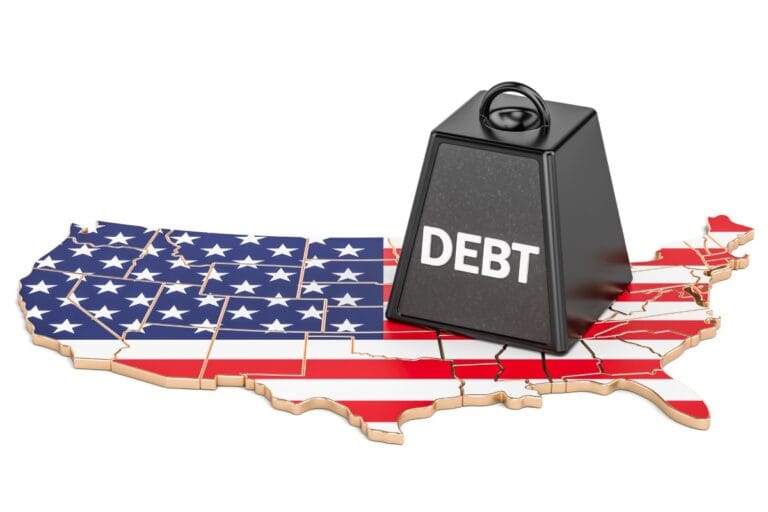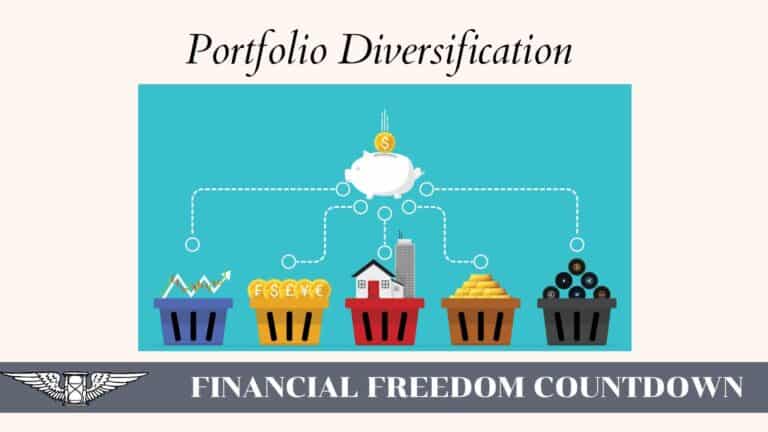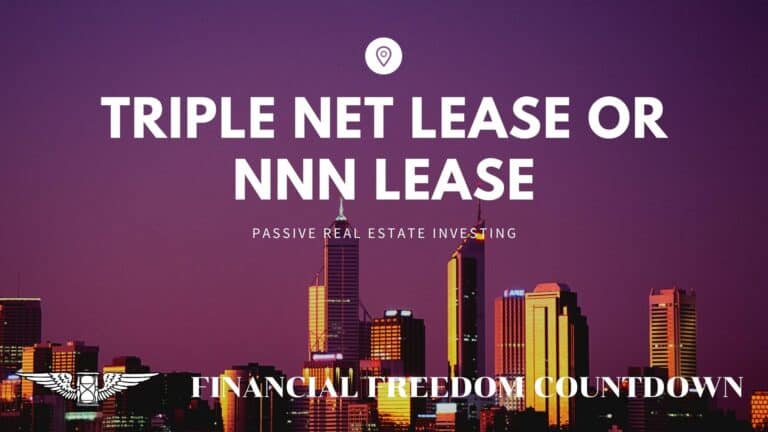As Inflation Looms, Here’s How Farmland Can Protect Investors

Today we have a sponsored post by FarmTogether, the leading farmland investing platform.
Visible Signs Of Inflation
You don’t need to be an economist to see inflation picking up all around us. Prices of commodities from lumber to copper are climbing higher every day. Gas is already creeping up, and we have not yet begun the summer driving season. Grocery stores are reporting higher food prices. Although the Fed claims the inflation is “transitory,” we have no idea of the magnitude of inflation expected.
As part of prudent asset allocation, our income-producing assets should include assets that act as a hedge against inflation. We have already covered bitcoin and gold in the past.
Bitcoin, although promising, does not have a long investment history. Gold has been used for millennia. However, it does not provide any return for holding it. It costs money to store it. There is one more asset class that has been a favorite of billionaires for centuries, namely farmland.
In the past, investing in farmland was available to only the ultra-wealthy. However, with the advances in technology and crowdfunded investments, farmland is now accessible to almost everyone.
Why the Economy Might Be Poised for Long-Term Inflation
Most elements of the global economy were halted for a year. To get the economy back on track, central banks around the world have lowered interest rates. Governments have also launched unprecedented stimulus measures.
In the US, we have had several stimulus bills. And we are still not done. The upcoming infrastructure bill will pump even more additional money into the economy. No matter how you vote, politicians across the world are pushing for Modern Monetary Theory and printing of more money going forward.
Although the pandemic is far from over the world, people are gaining the confidence to make non-essential purchases and do so in significant numbers. Additional spending will likely drive up the price of household goods. Stock markets are rightly worried about inflation because rising inflation makes consumers more budget-conscious than they are now. The US is a consumer-driven economy. If the consumer reduces spending, stocks might sink lower.
How Inflation Impacts Your Investments
Inflation has different effects on different assets. Commodities, for example, typically rise in value when retail prices rise. It makes them excellent investments during inflationary periods.
Bonds typically provide a refuge against stocks. However, with low interest rates, most investors won’t find much upside from a bond-heavy portfolio. Bonds tend to perform poorly when inflation happens. The underlying interest you earn on your bond doesn’t go as far in terms of value if the purchasing power of the dollar drops.
Inflation makes stocks more volatile as well: value stocks can perform well while dividend-paying stocks may not. Volatility of stocks is one of the main cons of stock investing as we talked about in our real estate or stocks article.
The odds are that the kind of inflation the global economy might face could pull stocks downwards. Washington appears ambivalent to the risk of rising inflation in favor of stoking an economic recovery.
Investors are going to have to look beyond stocks.
In other words, inflation’s impact on your portfolio depends on your asset allocation as well as individual holdings. A stock-heavy portfolio may survive an extended period of inflation depending on what you shares you own. Bonds may falter unless they are inflation-protected such as TIPS or I-Bonds. Even with inflation protection, your portfolio may suffer in terms of what your interest payment buys you.
Other assets, such as commodities and alternative investments more broadly, can even grow in value despite—or even due to—inflation. This makes it essential to seek alternative investments, such as farmland, to hedge against inflation. Here’s how farmland can help protect your assets from inflation.
“One of my greatest pleasures is being on the farmland that’s been in the family since 1833.”
Jimmy Carter
The Role Farmland Investing Plays as an Inflation Hedge
It’s difficult for any portfolio to avoid altogether the challenges and uncertainties that come with inflation. Investors should aim to hedge against inflation instead of avoiding it entirely. The right hedging strategy can help your portfolio weather the storm.
For individuals meeting the accredited investor qualifications, farmland investing offers unique advantages as an inflation hedge. When you invest in farmland, you include a unique asset that shares similarities with agricultural commodities, real estate, and even precious metals.
Farmland increases in value when agricultural products increase in value since the underlying land becomes more valuable. This makes farmland well-suited to retain value over time, even during recessions. After all, people will always need to eat. Farmland investing is one of the most stable real estate options around and consistently gaining value on average since the 1990s.
Last but not least, farmland investing bears similarities with gold and other precious metals that investors lean on as a hedge against market volatility. That’s because there’s a finite amount of farmland available, even though the global demand for food will require farms to double their output by 2050. This makes farmland uncorrelated with the rest of the market, making it a solid investment in volatile market years and diversification of your portfolio.
What sets farmland apart even further from these other options is the potential return on your investment. Over the past ten years, American farmland has averaged ~11% total annual returns (income + price appreciation) from 1992 to 2020. The expected rates of return on farmland beat typical bond rates and costs far less per acre than an ounce of gold. This makes farmland an excellent value investment that can also help hedge against the harmful effects of inflation on your portfolio.
How to Invest in Farmland
It’s easy to get started in farmland investing with FarmTogether.
FarmTogether is a technology-enabled, all-in-one platform that enables accredited investors to browse properties, review due diligence materials, and directly invest in top farmland opportunities across the United States.
Investors can start by creating a free FarmTogether account. Through your online portal, you’ll get a sampling of the tools investors can access, including all due diligence documents, project financials, proposed deal structures, investment documents including operating agreements, private placement memorandum, subscription agreements, and more. Investors will see a wide range of crops, both current and past offerings, to choose from, allowing you to diversify your portfolio based on market trends and crop success rates. Investors will also be pleasantly surprised to find that these opportunities offer 7 – 13% returns with 3 – 9% cash yields.
These too-good-to-be-true numbers aren’t surprising. The FarmTogether investment team sifts through hundreds of properties and completes thorough due diligence, with only the best properties (3% to be exact) making it to the platform. FarmTogether’s due diligence includes industry analysis, soil, tissue, water availability and rights, on-farm equipment, farm’s potential for capital improvements, and much more.
FarmTogether’s investment offerings are legal entities, most often LLCs, that own the titles to your investment property. When you invest on FarmTogether, you’re purchasing shares in an LLC, and you become a partial owner of a farm of your choice, therefore becoming entitled to proportionate returns. Investors receive income in three ways: crop yield, lease payments, and land value appreciation when the property is sold.
Once you’ve invested on their platform, you sit back and relax. You’ll receive regular updates on your investments, including key performance indicators on productivity, photos, and videos.
The best news? Accredited investors can get started for as little as $15,000.
Farmland Investing and Inflation: The Bottom Line
The conditions for an extended period of inflation are correct, based on current market conditions, supply chain issues, and consumer demand. Each of these factors could be enough to create an inflationary period on its own; combining all three makes it almost unavoidable. That’s why investors must hedge against inflation’s ill effects on stocks and investment funds. Usually, bonds would be an effective hedging tool. Unless interest rates increase, it’s unlikely that bonds will have the same appeal they did during other periods of increased inflation.
This is why investors need to look beyond the stock market for effective hedging strategies. Farmland investing offers advantages against inflation that investors can’t find elsewhere.
To learn more about FarmTogether, check out their FAQ. You can also sign up for an account today to get started.
Can Farmland offer inflation protection article is available as a web story.

John Dealbreuin came from a third world country to the US with only $1,000 not knowing anyone; guided by an immigrant dream. In 12 years, he achieved his retirement number.
He started Financial Freedom Countdown to help everyone think differently about their financial challenges and live their best lives. John resides in the San Francisco Bay Area enjoying nature trails and weight training.
Here are his recommended tools
Personal Capital: This is a free tool John uses to track his net worth on a regular basis and as a retirement planner. It also alerts him wrt hidden fees and has a budget tracker included.
Platforms like Yieldstreet provide investment options in art, legal, real estate, structured notes, venture capital, etc. They also have fixed-income portfolios spread across multiple asset classes with a single investment with low minimums of $10,000.





